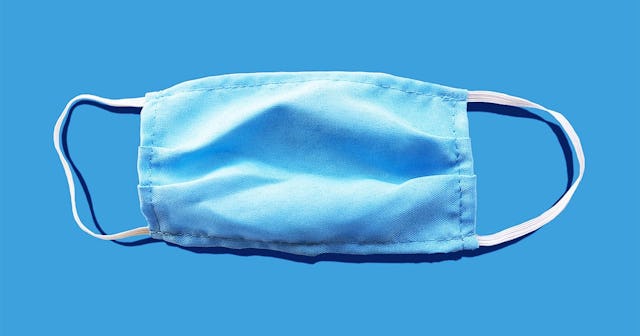Scientists Are Working On Creating An App That Analyzes COVID Cough Sounds

Scientists are analyzing cough sounds and using them to develop a diagnostic test for COVID-19
Researchers are working on developing a smartphone app that would perform a diagnostic test for COVID-19 based on the sound of the user’s cough. Scientists at the Embedded Systems Laboratory at the Swiss Federal Institute of Technology Lausanne are hard at work trying to find a way for people to record their cough sounds for the app to “listen” to and determine if the novel coronavirus is the cause of their illness.
The WHO reports that a dry cough is present in two-thirds of COVID-19 cases, which sounds very different from the type of wet cough produced by a common cold or allergy symptoms. Researchers at Embedded Systems Laboratory are currently gathering data, aka, tons of people’s cough sounds, in order to develop the app.
This isn’t the first time scientists have relied on coughing sounds to diagnose serious illnesses — whooping cough, pneumonia, and asthma are all illnesses where scientists have listened to the sound of a patient’s cough to draw conclusions about their condition. Lara Orlandic, one of the Embedded project’s research assistants, tells WBUR that the diagnostic test would rely on learning algorithms “to determine what kind of frequencies the cough is made up of.”
While the app is not yet available for use and is still being developed, people who suspect they may be infected with COVID-19 can record their coughing sounds on the project’s website in order to contribute enough data to make the app eventually usable. The users don’t have to share their names, but are asked to share and save their location in order to help researchers share the data with local governments and narrow down where outbreaks are occurring.
Orlandic warns that much like the nasal swab test for coronavirus that can produce false negatives, the coughing sounds testing method won’t be perfectly accurate either. “Our system can never be 100% perfect because … there’s that one-third of patients who are asymptomatic, so they don’t show any cough symptoms at all,” she explains. “What this app can do is it can serve as a sort of preliminary screening tool to first maybe put people at ease in case they’re at home, wondering whether or not they have coronavirus.”
At the moment, the most helpful thing for Orlandic and her team is patients recording their coughs on the website, because the more data they have, the better able they’ll be to create the diagnostic app. Of course, users recording their own coughs in uncontrolled environments won’t make for perfect data. “You have people with all sorts of different devices from around the world in different — perhaps some noisy, some quiet — environments sending in their recordings,” Orlandic says. “We need lots of data to be able to train the algorithms to distinguish between the types of coughs despite all the additional noise.”
As the world waits for effective treatments and a future vaccine, any efforts on the part of scientists to more quickly diagnose COVID cases and slow the spread is a positive development.
This article was originally published on